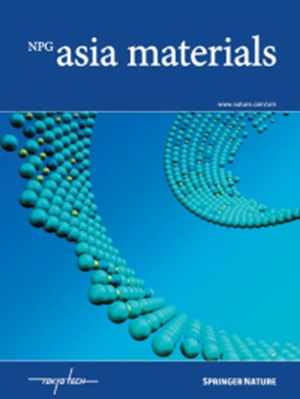Novel platinum nanoclusters (Pt NCs) induce mitochondrial apoptosis and damaging autophagy for the treatment of osteosarcoma—from the perspective of P53 mutation status in different cell lines
IF 8.3
2区 材料科学
Q1 MATERIALS SCIENCE, MULTIDISCIPLINARY
引用次数: 0
Abstract
This study aimed to investigate the anticancer efficacy and underlying mechanism of novel platinum nanoclusters (Pt NCs) in osteosarcoma cell lines exhibiting distinct P53 expression profiles, namely MG-63 (P53−) and U2-OS (P53+). The findings revealed that Pt NCs exerted an inhibitory effect on proliferation, migration, and colony formation while promoting apoptosis in both MG-63 (P53−) and U2-OS (P53+) cells. The inhibitory effect on the malignant characteristics of MG-63 (P53−) cells was more obvious, indicating that the potential anticancer effect of Pt NCs was not dependent on P53. Animal experiments have substantiated the in vivo anticancer properties of Pt NCs, while also revealing their lower toxicity on cells and tissues. Pt NCs possess the ability to impede cell proliferation by inducing DNA damage and arresting the cell cycle in the G1 phase and possess the ability to promote BAX/Bcl-2/Caspase-3/mitochondrial apoptosis. Pt NCs may promote mitochondrial apoptosis by promoting damaging autophagy, thereby promoting cellular demise. This study has confirmed the P53-independent anticancer impact of Pt NCs on osteosarcoma in vitro and in vivo. Pt NCs may play a therapeutic role in more sensitive MG-63 (P53−) cells by promoting DNA damage to arrest the cell cycle, stimulating BAX/Bcl-2/Caspase-3/mitochondrial apoptosis, and initiating damaging autophagy.

新型铂纳米团簇(Pt NCs)诱导线粒体凋亡和损伤性自噬治疗骨肉瘤——从不同细胞系P53突变状态的角度
本研究旨在探讨新型铂纳米团簇(Pt NCs)在具有不同P53表达谱的骨肉瘤细胞系中的抗癌功效和潜在机制,即MG-63 (P53−)和U2-OS (P53+)。结果表明,Pt NCs对MG-63 (P53−)和U2-OS (P53+)细胞的增殖、迁移和集落形成均有抑制作用,同时促进细胞凋亡。对MG-63 (P53−)细胞恶性特征的抑制作用更为明显,说明Pt NCs的潜在抗癌作用不依赖于P53。动物实验证实了Pt NCs的体内抗癌特性,同时也揭示了其对细胞和组织的较低毒性。Pt NCs具有通过诱导DNA损伤和阻滞G1期细胞周期来抑制细胞增殖的能力,并具有促进BAX/Bcl-2/Caspase-3/线粒体凋亡的能力。Pt NCs可能通过促进破坏性的自噬来促进线粒体凋亡,从而促进细胞死亡。本研究在体外和体内证实了Pt NCs对骨肉瘤的p53非依赖性抗癌作用。Pt NCs可能在更敏感的MG-63 (P53−)细胞中发挥治疗作用,通过促进DNA损伤来阻止细胞周期,刺激BAX/Bcl-2/Caspase-3/线粒体凋亡,并启动破坏性自噬。
本文章由计算机程序翻译,如有差异,请以英文原文为准。
求助全文
约1分钟内获得全文
求助全文
来源期刊

Npg Asia Materials
MATERIALS SCIENCE, MULTIDISCIPLINARY-
CiteScore
15.40
自引率
1.00%
发文量
87
审稿时长
2 months
期刊介绍:
NPG Asia Materials is an open access, international journal that publishes peer-reviewed review and primary research articles in the field of materials sciences. The journal has a global outlook and reach, with a base in the Asia-Pacific region to reflect the significant and growing output of materials research from this area. The target audience for NPG Asia Materials is scientists and researchers involved in materials research, covering a wide range of disciplines including physical and chemical sciences, biotechnology, and nanotechnology. The journal particularly welcomes high-quality articles from rapidly advancing areas that bridge the gap between materials science and engineering, as well as the classical disciplines of physics, chemistry, and biology. NPG Asia Materials is abstracted/indexed in Journal Citation Reports/Science Edition Web of Knowledge, Google Scholar, Chemical Abstract Services, Scopus, Ulrichsweb (ProQuest), and Scirus.
 求助内容:
求助内容: 应助结果提醒方式:
应助结果提醒方式:


